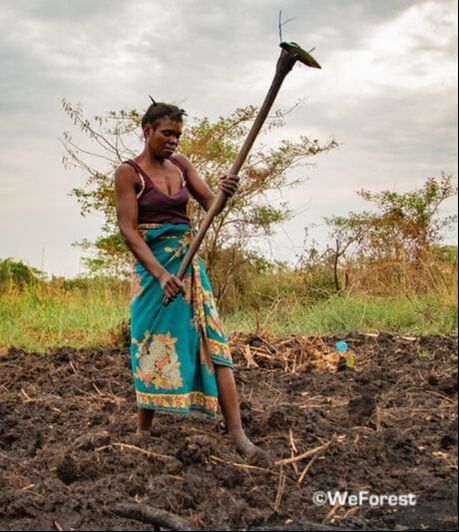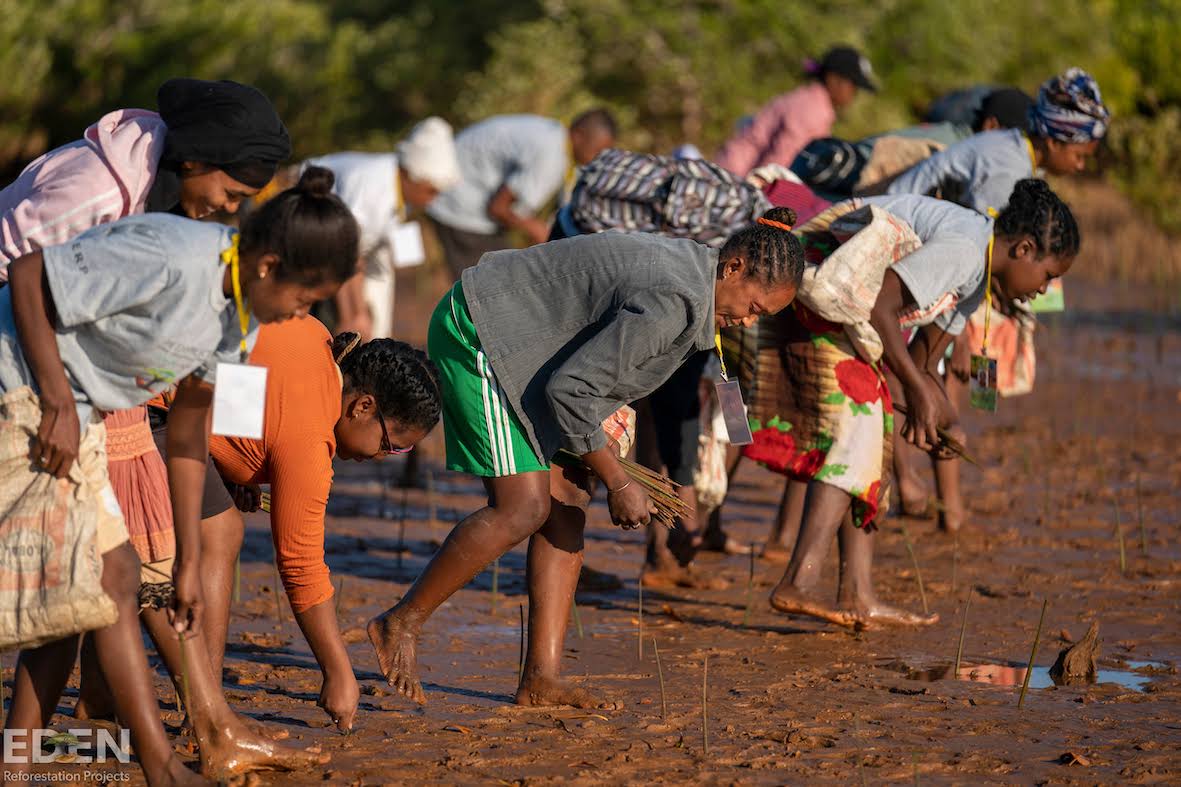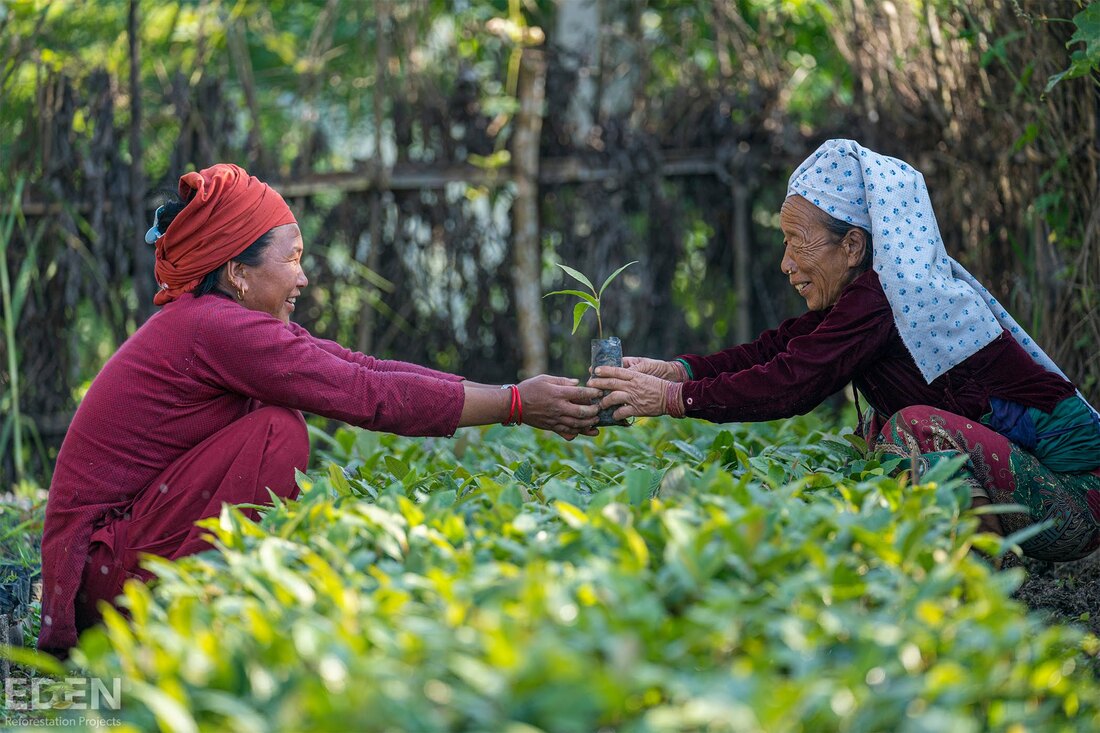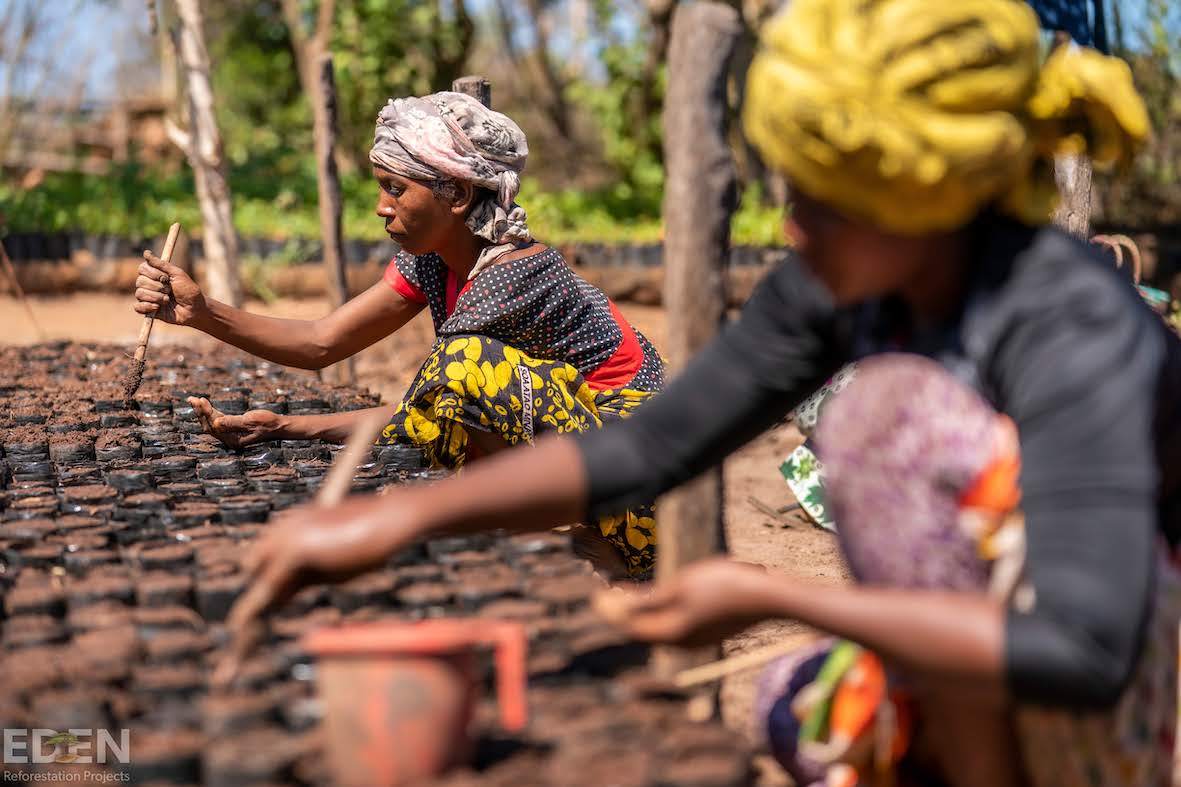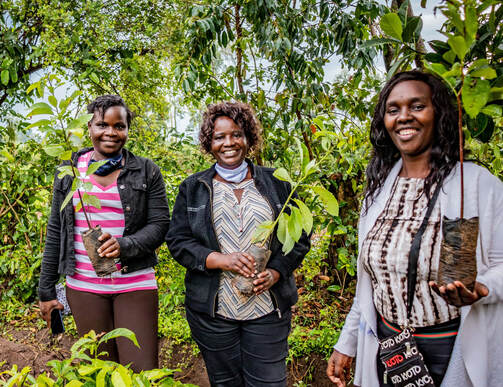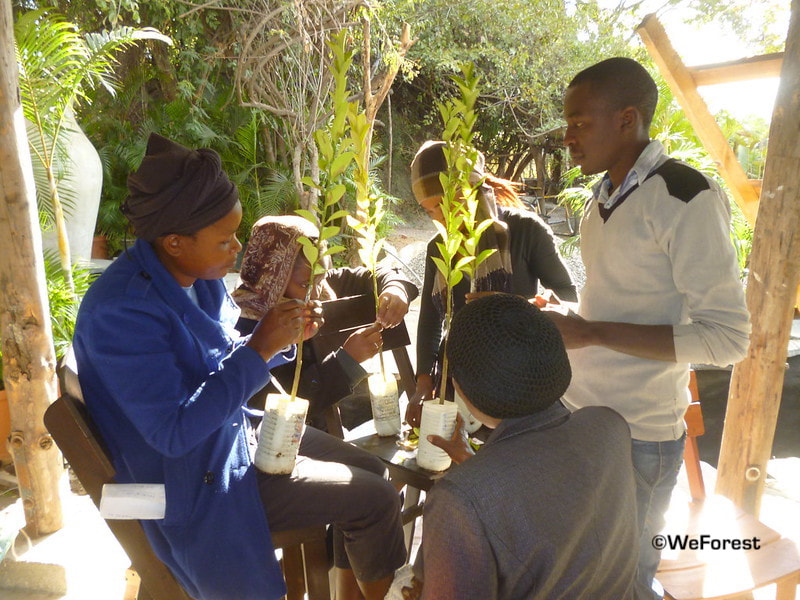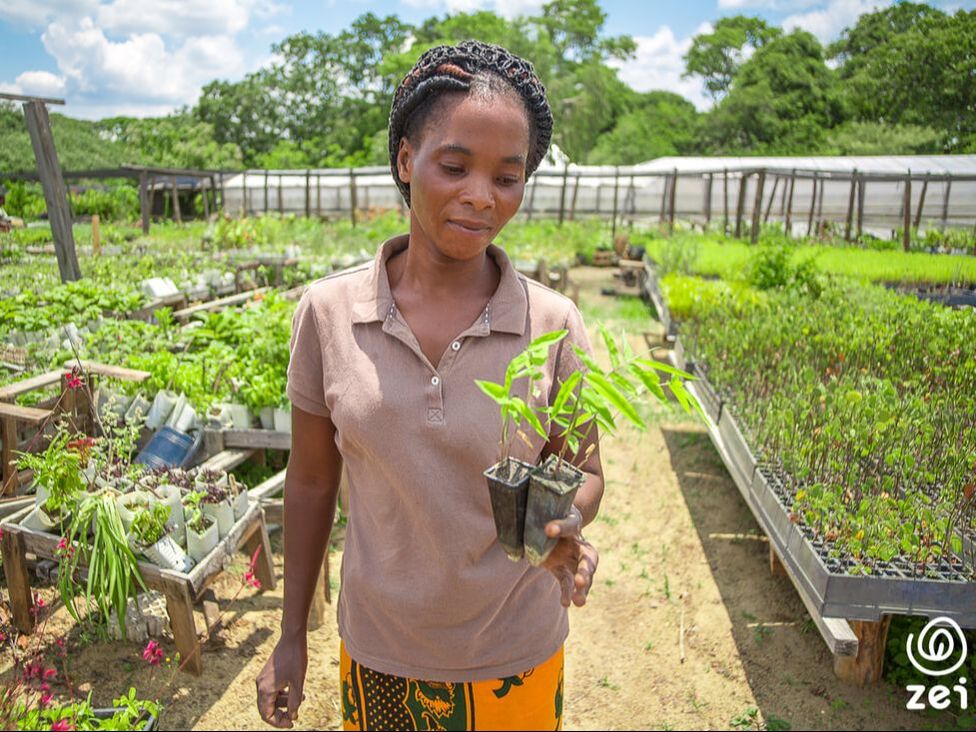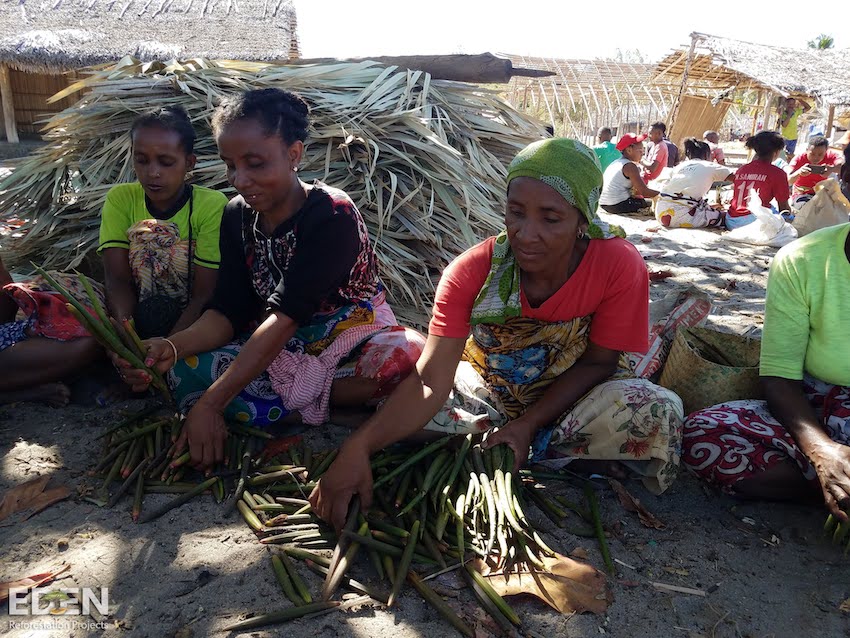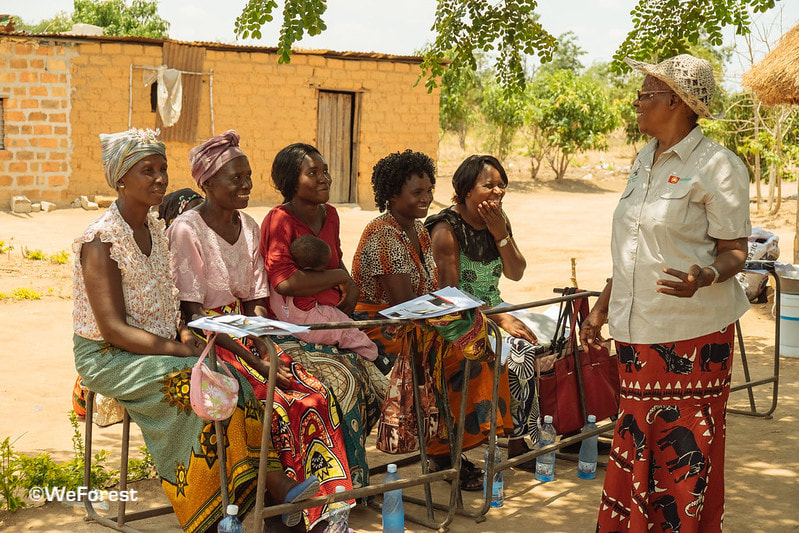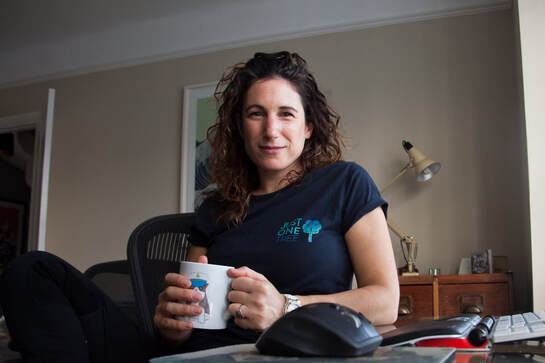This International Women’s Day, JUST ONE Tree is sharing the ways in which the projects we work with are empowering women.
Climate change will have a storm of consequences for us all. If you add in compounding factors like gender and poverty (and bear in mind that “70% of the world’s poor are women”), those impacts snowball. For example, studies have shown how women and those struggling with poverty are most at risk in natural disasters.
Social norms, physical differences and gender discrimination make climate change all the more daunting for women. Even something as seemingly insignificant as women’s clothing has been shown to make a difference. Globally, women’s clothing is often more restrictive and less practical than menswear. Research indicates that this makes women less likely to survive extreme weather events like floods and hurricanes. And you thought not having pockets was bad!
|
A Woman’s Work Is Never Done
In rural communities around the world, women do the majority of the housework and agricultural labour. There is a well-documented global trend of men leaving their rural communities to find opportunities in towns and cities. When men move to ‘the Big Smoke’, women are left behind with twice the workload.
In one study in Eastern Uganda, women spent twice as much time per day as men performing “non-employment work” like growing food and doing housework. Much of this excess labour goes unrecognised as it is unpaid and out of sight. |
Women make up more than 40% of agricultural workers worldwide but this doesn’t translate into having equal decision-making power in the home, in the community or in local government. In addition, if you live in a rural area, your livelihood probably depends on natural resources. This makes women in these areas even more vulnerable to the impacts of climate change, like droughts and floods, which may destroy farmland and basic infrastructure.
How JUST ONE Tree is Addressing Women’s Empowerment
With the help of our partners in Nepal and Madagascar, the tree planting projects that JUST ONE Tree supports employ vastly more women than men and promote more women to management positions. For instance,
JUST ONE Tree’s restoration plot in Madagascar has almost three times as many female tree nursery managers as male!
JUST ONE Tree’s restoration plot in Madagascar has almost three times as many female tree nursery managers as male!
|
Rose Wamalawa sees the benefits that tree planting can have for women’s empowerment, like greater autonomy and increased income. Wamalawa is the Director of WWANC, a training group leader with ITF, and one of JUST ONE Tree’s partners in Kenya. Having grown up in a rural area which was dominated by men, she is now motivated to create a platform for women and for them “to know that they have the potential, they have the resources, they have the land, and they can plant trees”. |
Tree planting benefits local communities and the planet as a whole. At a local level, trees can provide people with natural resources like food, improve soil nutrition, increase biodiversity and lessen the damage from extreme weather. On a larger scale, they also help alleviate global heating by storing carbon, and cooling the atmosphere through evaporation. (Who knew learning the water cycle in year 9 geography would be useful)?
By planting trees in countries such as Kenya, Zambia, Madagascar and Nepal, JUST ONE Tree is supporting women’s groups, empowering women and helping them gain greater autonomy and decision-making power. The conservation efforts we support address gender inequality by:
- providing women with training and skills in conservation practices,
- employing women in leadership positions,
- building on women’s existing knowledge and expertise,
- supporting women’s voices in making decisions on adaptation strategies, and
- giving women a sense of ownership over an income-generating activity.
It is vital that tree planting initiatives don’t just increase the workload for women who are already overburdened. JUST ONE Tree supports existing women’s groups who are introducing tree planting to their livelihood practices and promoting women’s voices as decision-makers.
|
Another of our partners, Teresa Gitonga (Kenyan Programme Manager, ITF), highlights that “women tend to make better natural resource management decisions when they are included in conservation practices and when they receive the skills and training to inform their efforts.”
Our partners on the ground have found that giving women an active role in conservation initiatives not only addresses gender inequality but also makes the projects stronger, more sustainable and of higher quality!
|
International Women’s Day is for celebrating the achievements of women and recognising their contribution. At JUST ONE Tree, we are proud to have a female founder and are committed to supporting women’s empowerment around the world.
Women are disproportionately affected by climate change, but research proves that educating girls and empowering women is key to making the biggest impact on climate action. We need to address climate change hand-in-hand with combatting existing inequalities so that we can all move forward into a
greener future together.
greener future together.

